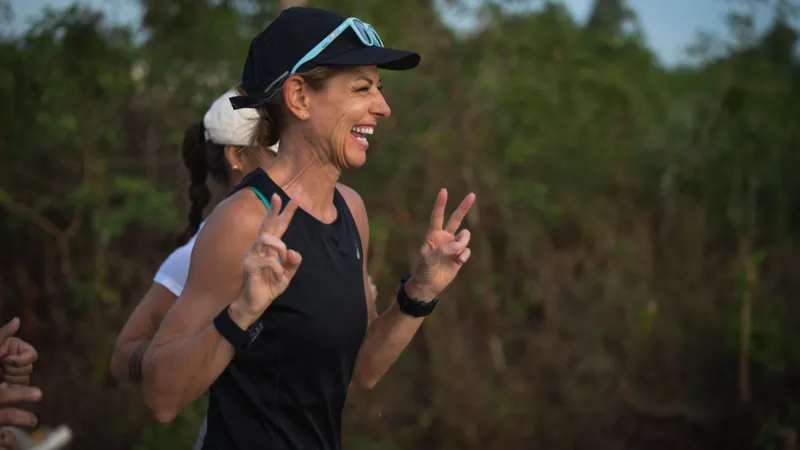Christian curriculum using textbooks that deny climate change and say evolution is impossible
A Christian curriculum used by at least 11 schools rubbishes the theory of evolution and denies climate change. Researchers say it could make students susceptible to believing conspiracy theories and not trusting vaccines. And former pupils say learning was "cult-like" and held them back.

Students in schools using the Accelerated Christian Education curriculum are being taught human-caused climate change is not real and evolution is "impossible", a study has found.
Climate change denial is a new addition to science textbooks that have been updated over the last few years, according to the research.
The textbooks deny human action is linked to rising temperatures and instead teach students God has a plan to prepare a new heaven and Earth with a better climate.
The Accelerated Christian Education (ACE) curriculum originated in Texas in 1970 and is used by at least 11 schools in the UK, as well as by some homeschooling parents.
It presents every subject through a Biblical worldview and creationism is a cornerstone of its science lessons.
Christian Education Europe, which oversees the ACE curriculum in the UK, describes the science course as "non-evolutionary in approach and content" on its website. The organisation did not respond to a request for comment.
Researchers from University College London found pupils are not exposed to any ideas contrary to the literal interpretation of the Bible until Year 9 - which they said goes against the legal requirement for schools to offer a "broad and balanced science curriculum".
The study's lead author, Dr Jenna Scaramanga, told Sky News pupils who study the curriculum end up "misinformed [and] not able to weigh scientific evidence".
'I thought evolution was a lie'
Tanya, who did not want to disclose her real name, was homeschooled with ACE between the ages of six and 18.
She described the science education she got as "really poor" with "lots of wrong information".
She graduated from ACE sure the theory of evolution was "ridiculous, that it was a lie".
"I didn't believe in climate change," she told Sky News.
Tanya said she was "completely unstuck" when she finished her schooling.
"ACE promises that its qualifications will get you into university. They didn't," she said.
Tanya took the International Certificate of Christian Education (ICCE), an ACE-specific qualification. The ICCE website calls it an "educationally robust" qualification and says graduates have gone on to a "wide range of institutions of higher education".
But that was not Tanya's experience. She had to spend an extra year doing a university access course to gain the qualifications she needed to start a degree.
She said she struggled through the course but is now partway through her second master's degree, "determined these people will not destroy [my] life".
While she has persevered with further education, Tanya said at 31, "there is still so much I don't know" about science.
"It's really embarrassing," she said, adding that she watches documentaries to catch up on what she missed at school.
The way children are taught science through ACE makes them susceptible to believing conspiracy theories, Dr Scaramanga said.
The learning style of ACE is largely self-directed and relies on rote memorisation, typically with little intervention from a teacher.
Students are presented with science as a "body of received wisdom", given no opportunity to develop critical thinking skills and told mainstream scientists are "colluding to promote false ideas" around evolution and climate change, Dr Scaramanga said.
Former ACE student Matthew Pocock agreed, saying ACE science teaching had wider implications for students later in life.
He said: "The sort of science denial in the PACEs [textbooks] paves the way for not believing in vaccines, but not isolating during COVID.
"It's part of the ground-laying for not being able to look after yourself in the real world."
Mr Pocock is now 47 and has a PhD in genetics - but said his ACE education cast a "long shadow" over his science career.
As a child who loved science, he quickly realised what he was learning in the textbooks did not match what he read in books or saw in documentaries.
The textbooks declare evolution "impossible" and present misleading versions of the theory. In a textbook published in 2016, students are told: "If fish evolved into frogs, fish should no longer exist, but obviously they do."
The messages about evolution were "insidious", Mr Pocock said, and even during his degree, he struggled to overcome them.
He added: "Unless you've been through one of these cult-like environments, where things are correct because you're told they're correct, I think it's difficult to understand how even if you've rejected them in your mind, they stick around emotionally for a very long time."
Dr Scaramanga's study on ACE textbooks was published in the academic journal Cultural Studies Of Science Education.
She hopes the rules can be changed to improve the prospects of children missing out on a proper education.
She does not believe the Independent School Standards, which state that creationism should not be taught at the exclusion of other scientific views, were enforced at ACE schools and called for that to change.
Nationally recognised qualifications such as GCSEs and A-levels should be a requirement, Dr Scaramanga added.
"The children who are being deprived of an education because of this system matter - they deserve better," she said.
"It might be that there are very few of them, but they matter because every child matters."
Sky News contacted all 11 schools affiliated with ACE requesting an interview about the science curriculum but none responded.
According to Christian Education Europe's website, the ACE science curriculum "takes the students' natural curiosity about their physical environment and helps them build a solid foundation based on Biblical principle".
It says the ICCE qualification "recognises and encourages a high standard of academic achievement" and says it was independently benchmarked at equivalent to A-level standard.
A Department for Education spokesperson said independent schools were free to set their own curriculum but must meet the Independent School Standards.
The spokesperson said: "This includes a requirement to provide a full-time supervised education in multiple fields such as science and creative education.
"Any school which teaches a curriculum that does not meet these requirements will not meet the Independent School Standards and subsequent action may be taken in line with our published policy."
They did not specify whether any of the schools using the ACE curriculum would face action.
-sky news







